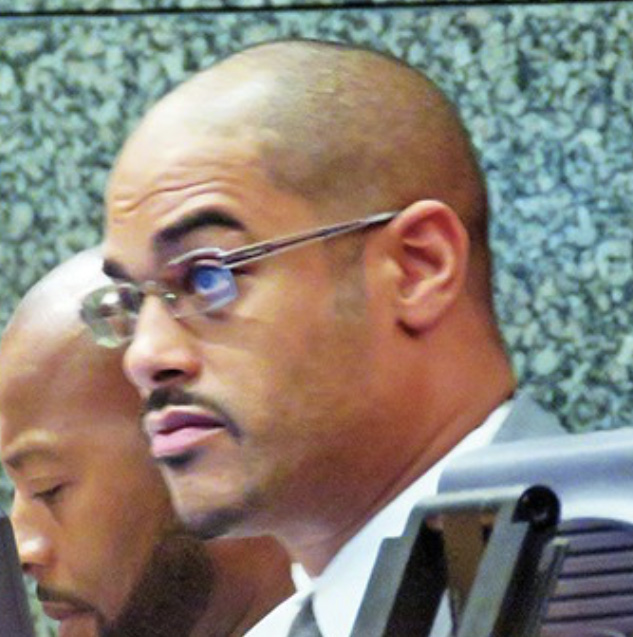In an unusually eventful and seriously elongated meeting Monday, the Shelby County Commission achieved some genuine progress and did some modest backsliding.
The backsliding came first and took the form of revisiting the commission’s near-unanimous vote on May 25th to seek a gubernatorial veto of General Assembly legislation banning the teaching of Critical Race Theory in Tennessee schools. The vote back then was 10 for the resolution seeking the veto, with one abstention — that of Republican member Brandon Morrison.
Early on Monday, shortly after the body got a highly positive update on the Covid-19 situation from David Sweat, the soon-to-be-departing deputy Health Director, GOP Commissioner Amber Mills expressed a wish to change her vote on the erstwhile Critical Race Theory vote. Her reasons were apparently twofold: (1) that Governor Lee had already signed the measure into law, making a call for a veto moot; and (2) she had apparent second thoughts about the bill itself.

So, as it turned out, did fellow Republicans Mick Wright and David Bradford. After the commission accepted a motion from Mills to reconsider the May 25th vote, a revote showed Wright joining Mills in voting no, while Bradford joined Morrison in abstaining. Democrat Tami Sawyer had informed her colleagues in advance that “I take every vote against this as a personal affront.” Republican Mark Billingsley was present but did not vote.
The major business of the day concerned the 2022 Shelby County budget and the forthcoming county tax rate.
Before the commission began its discussion on those items, it first heard from five audience members — Joe B. Kent, Meghan Kiel, Theryn Bond, Susanne Jackson, and Patrice Minor — all of whom urged the commission to raise taxes to the degree necessary to finance an expanded budget advanced by the ad hoc Moral Budget Coalition. That budget, calling for numerous upgrades in health care and environmental strategies, among other upgrades, would later be proposed by Sawyer, along with a proposed tax rate of $3.72 (later lowered by her to $3.69).
Sawyer’s amendment to that end would be defeated by a vote of 4 ayes (herself, Van Turner, Michael Whaley, and Reginald Milton), 7 nos (Billingsley, Wright, Bradford, Morrison, Mills,Willie Brooks, and budget chair Edmund Ford), and one abstention (Mickell Lowery).
The state-certified 2022 tax rate for Shelby County, that which was calculated to engender the same amount of revenue overall as the current rate of $4.05, was $3.45, and the commissioners hewed as close to that figure as possible in their deliberations. Numerous wish-list items were added on by various commissioners — some accepted, some not — but any which involve changes in expenditures were balanced by takeaways from elsewhere in the budget.
That process could — and did — involve lengthy and even nerve-wracking discussions — like some additional funding, for example, proposed by Morrison for MATA that had to be balanced by slicing funding or seeking additional sources for the commission’s Enhanced Grants (those under the control of individual commissioners for distributing on projects in their districts).
There was a great deal of back-and-forthing of that sort on various matters — all of it, for better or for worse, under the aegis of Robert’s Rules of Order, which is followed very literally. Those very parliamentary procedures came to the aid of those desiring to add another cent to the basic $3.45 tax rate — such an add-on equating to $2,292,999 in revenue to support youth and adult mental health programs, the one part of the Moral Budget that ended up being rescued. Robert’s helped when it was realized that the commission could vote to suspend its rules and accept a late vote in favor of the add-on from Commissioner Reginald Milton.
That, as it turned out, was the only change in the state-certified tax rate. On a lopsided vote, the commission boosted it to $3.46. Total planned expenditures, including federal funding from the Biden administration’s American Recovery Plan (ARP) is $1.53 billion.
Mindful of budgetary disagreements last year between the commission and the administration of Mayor Lee Harris, Commissioner Billingsly asked for — and received — assurances from budget director Michael Thompson that the commission’s priorities would be honored.
Both chairman Eddie Jones and budget chair Edmund Ford received the plaudits of their colleagues for their artful steerage of this year’s budget away from the kind of potential snarls and delays that made last year’s budget process something of a prolonged nightmare. Monday’s meeting was a 7 ½-hour affair, but that was the snap of a finger compared to the numerous lengthy budget sessions undergone by the commission in 2020.
The last action of the evening was an 8 to 5 vote by the commission in favor of conducting real-property appraisals every two years rather than every four years as at present. County assessor Melvion Burgess had lobbied hard for the change.
